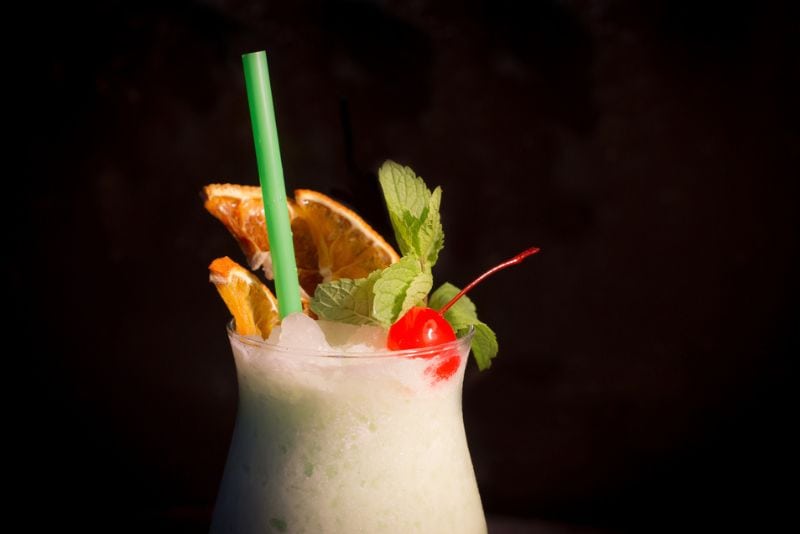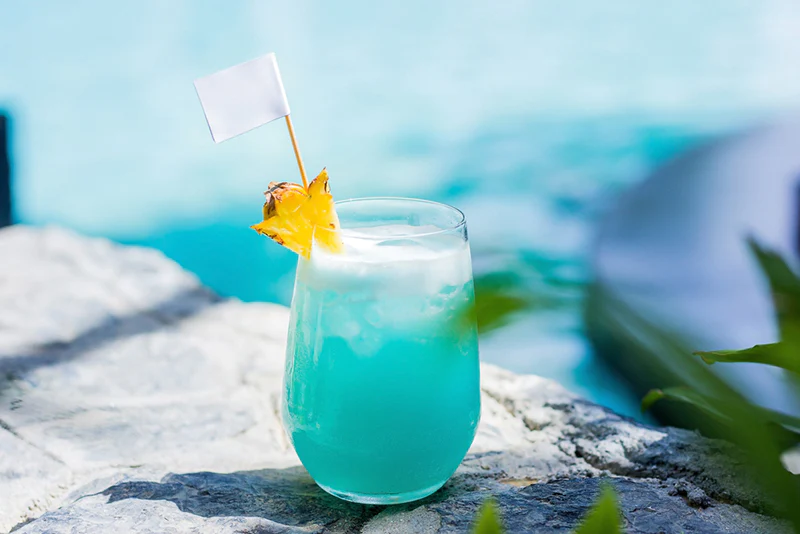IS ABSINTHE LEGAL IN AUSTRALIA? WHILE THE ANSWER IS TECHNICALLY YES, THERE ARE SOME STRICT TERMS AND CONDITIONS THAT COME WITH IMPORTING “THE GREEN FAIRY”.
Needless to say, this infamous emerald green liquor is not for the faint hearted. With its alcohol content sitting at 50-70% on average, it’s not the type of alcohol that can be procured at 2:00am as an afterthought – at least, not if you intend on drinking ever again.

France’s love affair with la fee verte – or the green lady – is one of the primary reasons as to why absinthe grew to such notoriety during the late 19th century. Favoured by artists, writers and bohemians alike, the streets of Paris came alive every evening once the green fairy began to flow freely. Often portrayed – and embraced – as a hallucinogenic, it was banned across much of Europe before experiencing a revival in the western world in the early 1990’s.
Even now, absinthe is still that of an urban legend, but that doesn’t mean that it shouldn’t be approached with caution. Many countries around the world have had a ban on the liquor at one point or another, so it should come as no real surprise that the import of absinthe is still heavily regulated even in 2021 – but what’s the big deal?
WHY ABSINTHE GETS A BAD WRAP
Although rumours of wormwood infused brews can be traced as far back as the Egyptian Empire, the creation of absinthe as we now know it can be claimed by French doctor, Pierre Ordinaire. While residing in the small Swiss town of Couvet in the late 18th century, Dr Ordinaire produced an emerald green elixir that contained a mixture of local herbs, fennel, green anise and wormwood. In time, this came to be regarded as a solution for anything and everything from anemia to flatulence.
Across the Alps, France was soon consuming over 36 million litres of absinth per annum. By 1910, mass production set prices at an affordable and accessible rate, and soon absinthe was consumed by aristocrats and struggling artists alike. Perhaps unfairly, absinthe also developed a reputation as being the undoing of many prominent minds – while the substance allegedly drove Vincent van Gogh mad and in turn suicidal, in comparison Ernest Hemingway would perform knife tricks in bars across Paris after consuming the green fairy.
The primary mystique that surrounds the consumption of absinthe is linked to it’s alleged hallocuonigeic properties. Allegedly able to expand the consciousness of consumers and spark one’s imagination, it became the drink of choice for creatives around the world. Although no modern day peer reviewed study has ever been able to prove this, it’s widely believed that the associated “trips” are thanks to the wormwood plant, one of the key ingredients found in absinthe.
While native to Europe, the key ingredient found in absinthe is wormwood, and it grows readily across various climates, including parts of Asia, Africa, South America, and the United States. Wormwood is naturally rich in thujone, a chemical compound believed to trigger inexplicable transformations of the mind. In the 19th century, absinthe often got the blame for what would now be viewed as straight up alcoholism, and was also “linked” to bouts of mania, psychosis, violent and erratic behaviour. Thus, the wormwood in the liquor was regarded as a stimulant for some, and a descent into lunacy for others, eventually leading to bans on absinthe right across Europe.
However, thanks to features in modern day pop culture staples such as Baz Lurman’s “Moulin Rouge!” and distilleries embracing old family recipes, absinthe has certainly made a comeback. Still – old habits die hard – and nations around the world still have relatively strict regulations when it comes to the import, production and sale of absinthe.
Importing Absinthe To Australia
Although it has never been illegal to import or manufacture in Australia, absinthe importation requires a permit under the Customs (Prohibited Imports) Regulation 1956 due to a restriction on importing any product containing “oil of wormwood”.
However, in the year 2000, an amendment made all wormwood species prohibited herbs for food purposes under Food Standard 1.4.4. Prohibited and Restricted Plants and Fungi. This amendment was later found to be inconsistent with other parts of the preexisting Food Codem, and it was withdrawn in 2002 during the transition between the two codes, thereby continuing to allow absinthe manufacture and importation through the existing permit-based system. These events were erroneously reported by the media as it being reclassified from a prohibited product to a restricted product.
In 2021, is absinthe legal in Australia? Yes – and somewhat surprisingly, we actually have less restrictions on thujone (active wormwood ingredient) than that of our European Union counterparts, which allow 25 mg/kg allowed, compared to the 35mg/kg allowed in Australia. Absinthe distilleries are considered to be rare in Australia, but the Tamborine Mountain Distillery on the Gold Coast have claimed to produce “Australia’s first premium absinthe” – the Moulin Rooz.
While nobody can say whether you’ll witness Kylie Minogue appear as the green fairy after a few glasses, there’s no denying that the controversy and mistique are all a part of absinthe’s appeal – and the global curiosity doesn’t look to be diminishing anytime soon.




